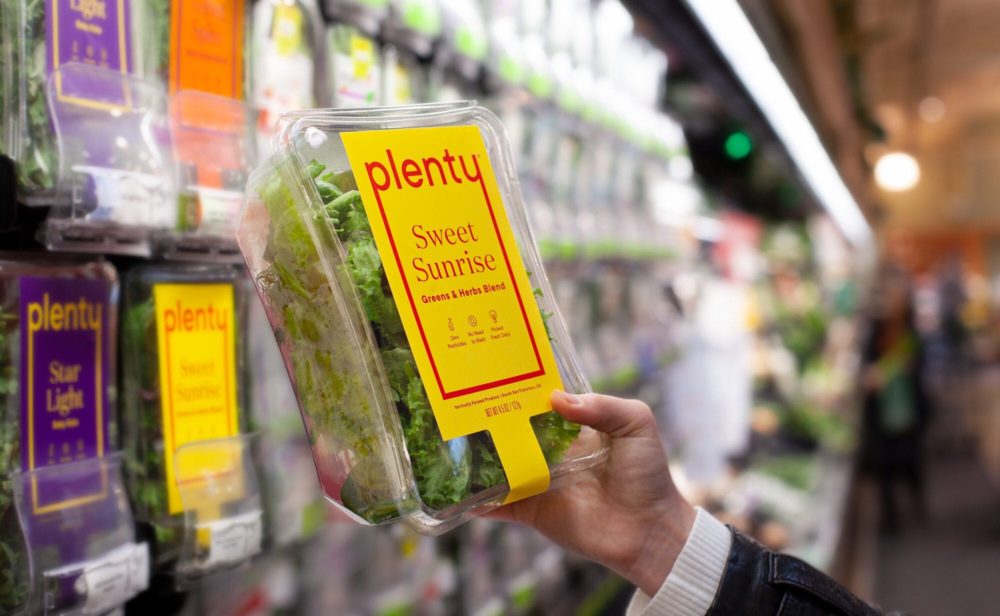
As Impossible Foods‘ former vice president of sales, Dana Worth is no stranger to the agrifoodtech space. He recently announced his departure from the plant-based patty maker to take up a new role as senior vice president, commercial, at US vertical farming startup Plenty.
The Californian startup is one of the best-funded indoor farming outfits in the game, with $541 million in total venture funding according to Crunchbase. It has attracted big-name investors like SoftBank, which led its $200 million Series B round in July 2017.
Plenty’s most recent funding, a $140 million Series D, was co-led by SoftBank and fruit merchants Driscoll’s with an eye towards testing strawberries in its indoor growhouses.
Worth worked at Impossible for nearly six years, serving as vice president of business operations before switching to sales. Before that, he worked at fintech firm PayPal, building out the brand’s presence in Latin America to 5 million active users in three years.
According to Worth, the same thing that drew him to Impossible in 2015 is what brings him to Plenty today.
“It really all starts with the mission. The chance to have an impact on the food system, which I believe is the closest thing we have to a silver bullet to solve many of the problems that face the planet,” he tells AFN.
Farming has remained relatively unchanged for hundreds or even thousands of years, he adds. Finding ways to improve efficiency — which, for Impossible, means eliminating animals from the food chain — is something he’ll continue to pursue with Plenty.
Recently there has been an influx of venture capital into the indoor farming space. Minnesota’s Revol Greens raised $68 million in October 2020 at around the same time that Kentucky-based AppHarvest agreed a $475 million SPAC deal.
“I love that there is money and brains and people flowing into the sector because there are plenty of problems to be solved. The more time and attention we have focused on it the better off we will be,” Worth says.
And as for our collective appetite for salad and produce, Worth isn’t concerned considering the number of meals each of us has to consume on a daily basis.
“The opportunity for conversion really is that great. There’s nothing predetermined about what you have to eat. There’s a bunch of assumptions we have made based on the availability and nutritiousness of food in the past,” Worth explained.
“But if you start to relax some of those assumptions, you’ll find that everything is up for grabs. The world would be a better place if we ate more fruits and vegetables. Currently, we are nowhere near the current recommendations.”
Studying up on indoor
Although Impossible Foods and Plenty are both agrifoodtech startups, they operate in different spheres – and Worth finds himself a student of the indoor farming space.
“I’m not a scientist or an engineer and in some ways, I think that gives me the opportunity to ask kind of naive questions,” he admits.
“I love doing that. When I was at Impossible, I spent some of my early days in the lab with our scientists working on experiments and really trying to understand how the system works.”
Although they may not have involved leafy greens or strawberries, his past experiences have equipped him with some important tools for the task ahead. Respecting the way a system works and being able to challenge it at the same time is his key takeaway from his prior position.
“When I think about the people who I see who are the most successful in this space, it is the ones who are sober and grounded about the reality of our industry,” he says.
“We’re making perishable food that goes into people’s bodies that has all kinds of attendant challenges of scaling something in the physical world. We’re not just selling bits and bytes. We’re not infinitely scalable.”
An average day for Worth in his new role centers around strategy. Sometimes that entails in-depth discussions; at other times, it involves studying, deep thinking, and formulating ideas.
With so many options laying at the startup’s feet, it can be overwhelming to know how to proceed. And with a constant influx of data teasing out every aspect of the startup’s performance, it can be a bit like trying to drink from a firehose.
Making the most of this requires a strong company culture, in Worth’s view. That’s why he aims to spend plenty of quality time with staff to create the right culture, particularly when the team is still relatively small.
“Every person we add to the team impacts the culture. It’s really important for the commercial team to be plugged into the engineering team and the financing team,” he says.
“It takes time, but it’s really great because it allows you to move forward in an integrated way.”





